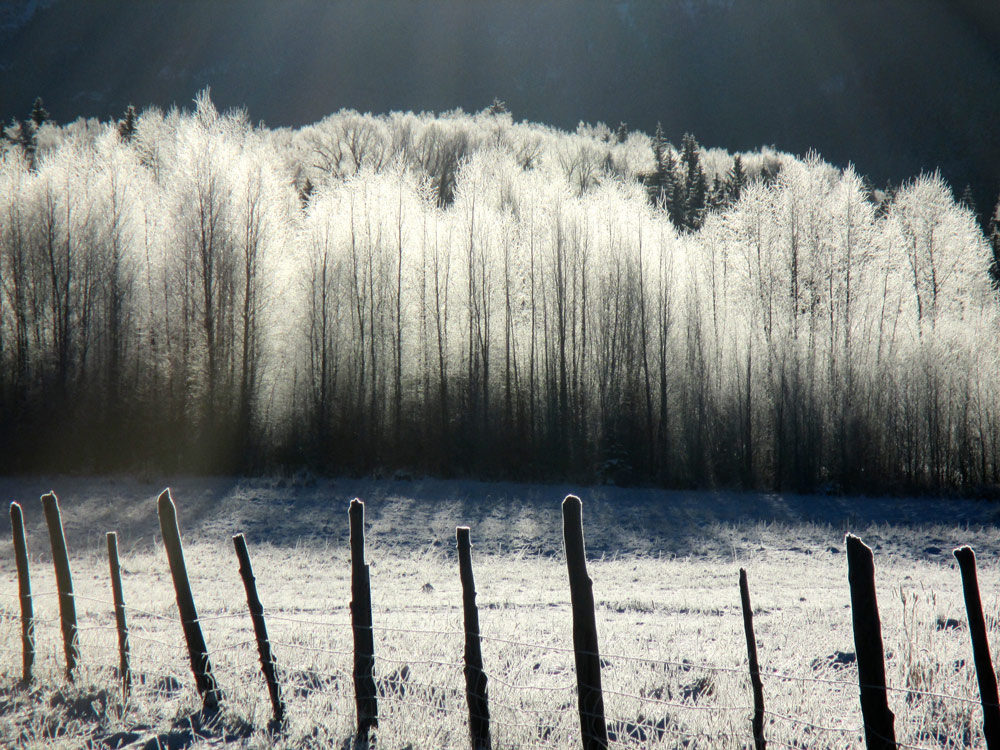More poems are written about love than any other subject.
Death is, perhaps, second, followed by a big emotional bouquet: anger, despair, loneliness, greed, fear, lust, misunderstanding, gratitude. These are, after all, the most important things to write about.
Notice that everything in the above list is abstract. You can’t touch, taste, smell, hear or see any of the topics listed. You can’t hold love in your hands. You can’t smell gratitude. But you can cradle a lover’s face or smell the macaroni & cheese your mom made when you visited last because it was your favorite childhood dish.
And this is the secret to writing about the emotional world. If you want to really reach a reader, make it concrete.
For instance, here is a recent poem I wrote about regret.
Regret
When you listen to the story of the white birds
that skimmed the morning drive,
imagine how they might have taken flight in your wintry blood, if only
you’d remembered to look up.
You must sit with the eight brown leaves
that still cling to the naked shrub
and recognize your own dry dreams,
how they, too, were once green
and gathered the sun into succulence.
When did you let your thoughts
become gray knuckled,
forget how to surrender to opening?
And where is the smell of spring?
And how might you slip your breath
into the rhythm of snow melting
drip, drip, drip,
and become the rich song
the one-note crow wishes to sing?
Regret is the sister of longing.
They both fall in love with their long blue shadows,
mesmerize themselves with their lonely dance.
If you sit long enough by the naked plants,
you will see how the sticks
bare their own bald grace,
how sometimes the most powerful prayers
begin as skeletons.
This poem came out of an exercise I gave for the Vail Symposium earlier this month. It’s one of my favorite writing exercises. Here’s how to do it at home.
- Think of the last time you laughed or cried.
- Think of an abstract word–such as an emotional word or an ideological word–that seems appropriate to that moment and at the top of the page. Humor. Independence. Frustration. Desire. Impatience. Exuberance. It will be your title. Now forget about your word and the event for a while.
- Go outside and gather as many images as you can. Write them on a page. Try to use all your senses. Make a list of at least 20 things. More is great. Be specific. Instead of saying “leaves,” note that they are dry brown leaves. You may note their shape. You may crush them in your hand and note the sound. You may smell them for dankness. I do not recommend tasting them.
- Put yourself in a new space, a comfortable writing space, and begin to let your mind freely associate the images you’ve just gathered with your recent experience. Write. What is marvelous is that the whole time you were gathering images, your brain was still thinking about the event and the abstract. It will make the connecting leaps for you.
- If you need a starting line, I like stealing this one from a poem called “Kindness” by Naomi Shihab Nye: “Before you know what _______ is, you must …” Fill in the blank with your abstract. Another great first line comes from “Cruelty,” by Lucille Clifton: “Don’t talk to me about _______”
- Try to use at least eight of your images. Try to not know what the ending will be until you arrive there. If you think of a good ending, try to write around it. See what else lurks there.
- Send me your poem. I’d love to see it.

